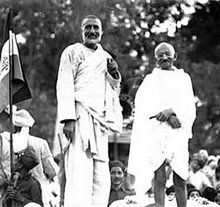Growing up white in an all-white suburb, I didn't have a close friend who was a person of color until I went away to college. In fact, the only person of color I had any contact with prior to college was a woman who came to help my mother with the house cleaning once a week. She treated me as if I were her own child and I loved her in return but, in my family, she was always a domestic servant.
During my childhood (say, between the ages of 5 and 12), the people of color who had a real impact upon me (beyond Carrie, the cleaning woman) were professional athletes. These individuals were heroes to me and their grace, skill, and beauty left an indelible impression. How anyone could consider them to be inferior on account of their race? Professional sports played an important role in my moral education.
In chronological order, my earliest sports heroes were as follows:
First, was the "Great One," the Pittsburgh Pirate right fielder with the golden arm, Roberto Clemente. Clemente's death in 1972 while engaged in a charitable mission to Nicaragua elevated him in my mind (and in the minds of many) to the level of a secular saint.
Second, the poet and wit of the boxing ring and one of the most impressive athletes of the 20th century, Muhammad Ali. His conversion to the teachings of the Honorable Elijah Muhammad and his principled refusal to fight in the Viet Nam war also affected me deeply
Third was Cleveland Brown's running back Leroy Kelly. I began to follow Kelly in the years prior to the rise of the Pittsburgh Steelers to dominance in professional football. Even after the "immaculate reception" of Franco Harris and the victorious run of the Noll years, my loyalty was to the Steelers as a team. I never acquired the same level of admiration for any particular Steeler that I reserved for Cleveland's number 44.
Finally, when I began to "discover" basketball, I also came to admire Johnny Brisker of the ill-fated ABA team, the Pittsburgh Condors. Brisker's later disappearance in Uganda is shrouded in mystery, but seems to have been consistent with the personal intensity and even volatility he exhibited on the court.
I am sensitive to the argument that professional sports is one of the few avenues of economic success available to people of color in the United States--some have called this the "new plantation." I think that, unfortunately, there is an inescapable degree of truth to this argument. But, speaking from personal experience, I can also attest that it was exposure to the careers of these four athletes in particular that made it difficult for me accept racist assertions of black inferiority. All four of these men were clearly superior in many respects to the whites against whom they competed and with whom they played.
Racism is a peculiarly American disease and, for me at least, the ability to witness such individuals in action proved to be part of the antidote.
Subscribe to:
Post Comments (Atom)







No comments:
Post a Comment